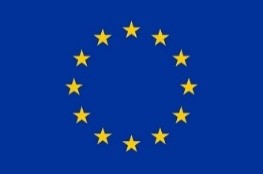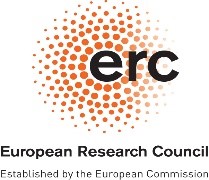Received:
2020-02-20 | Accepted:
2020-03-21 | Published:
2020-06-30
Title
Liaisons between culture and innovation: comparative analysis of South Korean and Lithuanian IT companies
Abstract
The present publication is centred on the key liaisons of Innovation (Kane et al. 2019, Marwede and Herstatt 2019, Kremer et al. 2019, Narayan, 2019, Lauzikas and Miliute 2017, 2019a, 2019b, and etc.) and Culture (Lauzikas and Mokseckiene 2013, Boon et al. 2019, ASUG, 2019, Clercq and Pereira 2019, and etc.) as two separate components of innovation climate aas well as the main effects of combination of these dimensions on business sustainability (Collett et al. 2019, Halim et al. 2019, Sull et al. 2019, Jin et al. 2019, and etc.). The research problem is how to acknowledge and excel in the areas, related to 'Innovation-Culture Symbiosis', without limiting the progress of innovation or human resource management as separate departments and not stopping a firm from strengthening its competitive advantages, driven by the combination of these dimensions. This is relevant and innovative, because nowadays a great number of efficiency and innovation-driven economies or high-tech industries face the necessity to identify, acknowledge and mitigate weaknesses in human resource or R&D performance as well as link these dimensions towards innovation culture via modern technologies, innovative managerial processes, strategic collaboration and creative leadership. The purpose of the present paper: comparing the key dimensions of 'Innovation-Culture Symbiosis' in high-tech firms of South Korea and Lithuania (both are education-driven countries) it is expected to illustrate the dynamics of a holistic system of innovation and culture, where these two dimensions are interdependent and form a unique equilibrium (which corresponds to a specific economic and business development stage, position in the value-chain as well as cultural and social norms of a country). Taking into account that sustainable business calls for continuous improvement of products and processes via HRM techniques, R&D, innovation and technology, the present research results are pertinent and value-adding to high-tech companies of both economies: they could help reach healthier equilibrium between innovation and culture within a specific socio-economic context, and contribute to the establishment of monitoring models which track the dynamics of innovation culture and lead to the bigger economic and social value-added. Taking into consideration the trans-disciplinary holistic nature of innovation culture, which requires a rich knowledge and experience within the present topic, the semi structured interviews with experts of Lithuanian and South Korean IT firms were conducted, the research results of the two economies were compared, and recommendations were provided for both high-tech experts and governmental policy or program developers.
Keywords
culture, innovation, climate, symbiosis, technologies, HRM, high-tech, leadership, strategy, competitive advantages
JEL classifications
M13
URI
http://jssidoi.org/ird/article/35
DOI
HAL
Pages
523-537
Funding
This research was supported by the project, which has received funding from the European Union's Horizon 2020 research and innovation programme European Research Council (ERC) under the European Union's Horizon 2020 research and innovation programme Marie Sklodowska-Curie Research and Innovation Staff Exchanges ES H2020-MSCA-RISE-2014 CLUSDEVMED (2015-2019) Grant Agreement Number 645730730
This is an open access issue and all published articles are licensed under a
Creative Commons Attribution 4.0 International License
References
Abrahamsen, M.H.; Henneberg, S.C.; Huemer, L.; Naude, P. (2016). Network picturing: Anaction research study of strategizing in business networks. Industrial Marketing Management, 59, 107-119. https://doi.org/10.1016/j.indmarman.2016.02.006
Search via ReFindit
Accenture (2018). It's learning, just not as we know it. How to accelerate skills acquisition in the age of intelligent technologies, p. 40, ) https://www.accenture.com/t20180920T094705Z__w__/us-en/_acnmedia/Thought-Leadership-Assets/PDF/Accenture-Education-and-Technology-Skills-Research.pdf
Search via ReFindit
ASUG, The State of the Community. (2019). Don't Get Eaten by The Big Fish, Bring Innovation Culture into Your Organization, p. 35, https://blog.asug.com/hubfs/2019%20AC%20Slide%20Decks%20Wednesday/ASUG84077%20-%20Don%E2%80%99t%20Be%20Eaten%20by%20the%20Big%20Fish%20Bring%20an%20Innovation%20Culture%20into%20Your%20Organization.pdf
Search via ReFindit
Atkinson, R.D.; Foote, C. (2019). Is China Catching Up to the United States in Innovation? p. 57, http://www2.itif.org/2019-china-catching-up-innovation.pdf
Search via ReFindit
Boon, C.; Hartog, D.N.D.; Lepak, D.P. (2019). A Systematic Review of Human Resource Management Systems and Their Measurement. Journal of Management, 45(6), 2498–2537. https://doi.org/10.1177/0149206318818718
Search via ReFindit
Brem, A.; Utikal, V. (2019). How to manage creativity time? Results from a social psychological time model lab experiment on individual creative and routine performance. Creativity and Innovation Management, 28(3), 291-305, https://doi.org/10.1111/caim.12309
Search via ReFindit
Bureau of Labor Statistics, U.S. Department of Labor, Occupational Outlook Handbook (2019). Computer and Information Research Scientists, https://www.bls.gov/ooh/computer-and-information-technology/computer-and-information-research-scientists.htm
Search via ReFindit
Carnevale, A.P.; Smith, N. (2013). Workplace basics: the skills employees need and employers want. Human Resource Development International, 16, 491-501, https://doi.org/10.1080/13678868.2013.821267
Search via ReFindit
Clercq, D.; Pereira, R. (2019). Resilient employees are creative employees, when the workplace forces them to be. Creativity and Innovation Management, 28(3), 329-342, https://doi.org/10.1111/caim.12328
Search via ReFindit
Collett, C.; Graham, J.; Lindsay, J. (2019). Innovative leaders & leading innovation. A Theoretical and Practical Analysis White Paper. iOpener Institute for People & Performance, An iOpener Institute Research Paper, May, p. 30, https://iopenerinstitute.com/wp-content/uploads/2019/05/Innovative-Leaders-and-Leading-Innovation_-May-2019.pdf
Search via ReFindit
Danish, R.Q.; Asghar, J.; Ahmad, Z. et al. (2019). Factors affecting “entrepreneurial culture”: the mediating role of creativity. Journal of Innovation and Entrepreneurship, 8(14) https://doi.org/10.1186/s13731-019-0108-9
Search via ReFindit
Deloitte (2019). Welcome to the Deloitte Technology Fast 50 Central Europe 2019, p. 59, www.deloitte.com/cefast50
Search via ReFindit
Deloitte by Kaji, J.; Hurley, B.; Gangopadhyay, N.; Bhat, R.; Khan, A. (2019). Leading the social enterprise: Reinvent with a human focus, 2019 Deloitte Global Human Capital Trends, p. 112, https://www2.deloitte.com/content/dam/insights/us/articles/5136_HC-Trends-2019/DI_HC-Trends-2019.pdf
Search via ReFindit
Deloitte, prepared by Seeger, S.; Hurley, B.; Bhat, R. (2019). Innovation in Europe. A Deloitte survey on European companies and how digital technologies can strategically enhance innovation, p. 28, https://www2.deloitte.com/content/dam/insights/us/articles/DE_897_Innovation-in-Europe/DI_Innovation-In-Europe.pdf
Search via ReFindit
European Commission, prepared by Warnke P. et al. (2019). 100 Radical Innovation Breakthroughs for the future, p. 338, https://doi.org/10.2777/563770 https://ec.europa.eu/info/sites/info/files/research_and_innovation/knowledge_publications_tools_and_data/documents/ec_rtd_radical-innovation-breakthrough_052019.pdf
Search via ReFindit
European Commission, prepared by: Hollanders. H. (2019). European Innovation Scoreboard 2019 – Methodology Report, p. 39, https://www.google.com/url?sa=t&rct=j&q=&esrc=s&source=web&cd=2&ved=2ahUKEwiYjPX-h-3mAhVHDuwKHRurCFMQFjABegQIBRAC&url=https%3A%2F%2Fec.europa.eu%2Fdocsroom%2Fdocuments%2F36282%2Fattachments%2F1%2Ftranslations%2Fen%2Frenditions%2Fnative&usg=AOvVaw3LgztKG_V
Search via ReFindit
EUROSTAT (2019). First estimates of Research & Development expenditure, p. 5, https://ec.europa.eu/eurostat/documents/2995521/9483597/9-10012019-AP-EN.pdf/856ce1d3-b8a8-4fa6-bf00-a8ded6dd1cc1
Search via ReFindit
GEM by Bosma, N.; Kelley, D. (2019). 2018/ 2019 Global Report. p. 152 https://www.gemconsortium.org/report
Search via ReFindit
Gonera, A., Pabst, R. (2019). The Use of Design Thinking in Transdisciplinary Research and Innovation Consortia: Challenges, Enablers and Benefits. Journal of Innovation Management, 7(3), 96-122. https://doi.org/10.24840/2183-0606_007.003_0006
Search via ReFindit
Halim, H.A.; Ahmad, N.H.; Ramayah, T. (2019). Sustaining the Innovation Culture in SMEs: The Importance of Organisational Culture, Organisational Learning and Market Orientation. Asian Journal of Business Research 9(2), 20, https://doi.org/10.14707/ajbr.190059
Search via ReFindit
Israel Innovation Authority by Gabay, U.; Linzen, N.; Aharon, A.; Gabay, U.; Kaufman, D. (2019). Innovation in Israel overview, p. 52. https://innovationisrael.org.il/en/sites/default/files/2018-19_Innovation_Report.pdf
Search via ReFindit
Jin, Z.; Navare, J.; Lynch, R. (2019). The relationship between innovation culture and innovation outcomes: exploring the effects of sustainability orientation and firm size. R&D Management, 49(4), 607-623. https://doi.org/10.1111/radm.12351
Search via ReFindit
Kane, C.G.; Palmer, D.; Phillips, A.N.; Kiron, D.; Buckley, N. (2019). Accelerating Digital Innovation inside and out; Agile Teams, Ecosystems, and Ethics, MIT Sloan Management Review, June 04, Findings from the 2019 Digital Business Global Executive Study and Research Project In collaboration with Sponsor Logo https://sloanreview.mit.edu/projects/accelerating-digital-innovation-inside-and-out/
Search via ReFindit
Kim, H.; Park, S.Y.; Joh, W.I. (2019). A Study on Technology Development Performance and Technology Commercialization Performance (According to the Technology Development Capability of SMEs Focusing on a Comparative Analysis of Technology Business Groups). Journal of Open Innovation: Technology, Market, and Complexity, 5(3), 65, p. 19, https://doi.org/10.3390/joitmc5030065
Search via ReFindit
Koehorst, M.; van Deursen, A.; van Dijk, J.; De Haan, J. (2019). Exploring the Creative Industries: toward a Classification by Process and Job Functions. Journal of Innovation Management, 7(3), 69-95. https://doi.org/10.24840/2183-0606_007.003_0005
Search via ReFindit
Kremer, H., Villamor, I., Aguinis, H. (2019). Innovation leadership: Best-practice recommendations for promoting employee creativity, voice, and knowledge sharing. Business Horizons, 62(1), 65-74, https://doi.org/10.1016/j.bushor.2018.08.010
Search via ReFindit
Lauzikas M.; Miliutė A. (2017). The Role of Education on Entrepreneurship in Lithuania. In: Sauka A., Chepurenko A. (eds) Entrepreneurship in Transition Economies. Societies and Political Orders in Transition. Springer, Cham; ISBN: 978-3-319-57341-0 (Print) 978-3-319-57342-7. https://doi.org/10.1007/978-3-319-57342-7_9
Search via ReFindit
Lauzikas, M.; Miliute, A. (2019a). Transformational Communication via Evolving Ethical and Moral Norms of Lithuanian Civil Service Organizations, Entrepreneurship and Sustainability Issues, 6(4), 1750-1761, https://doi.org/10.9770/jesi.2019.6.4(14)
Search via ReFindit
Lauzikas, M.; Miliute, A. (2019b). Communication Efficiency and Effectiveness within Strategic Management of Change: insights into Civil Service Organizations, Journal of Security and Sustainability Issues, 8(4), 617-630, https://doi.org/10.9770/jssi.2019.8.4(6)
Search via ReFindit
Lauzikas, M.; Mokseckienė, R. (2013). The Role of Culture on Entrepreneurship in Lithuania. Social Research, 2(31), 55–69. ISSN 1392-3110. https://vb.mruni.eu/object/elaba:6092663/
Search via ReFindit
Marwede, M.; Herstatt, C. (2019). No innovation for the elderly? The influence of cognitive distance in corporate innovation. Creativity and Innovation Management, 28(3), 355-367, https://doi.org/10.1111/caim.12318
Search via ReFindit
Mickov, B.; Doyle, J.E. (2017). Culture Innovation Economy, ISBN 1138219010, p. 210
Search via ReFindit
Narayan, R. (2019). Picturing future imaginaries for innovations towards sustainability transitions. Journal of Innovation Management, 7(3), pp. 7–11, https://doi.org/10.24840/2183-0606_007.003_0002
Search via ReFindit
National Innovation Foundation India (2019). Festival of Innovation and Entrepreneurship, p. 69, http://nif.org.in/upload/fine/A-report-on-Festival-of-Innovation-and-%20Entrepreneur-ship-2019.pdf
Search via ReFindit
Pfotenhauer, S.; Jasanoff, S. (2017). Panacea or diagnosis? Imaginaries of innovation and the‘MIT model'in three political cultures. Social studies of science, 47(6), 783-810. https://doi.org/10.1177/0306312717706110
Search via ReFindit
Schoff, J.L.; Ito, A. (2019). Competing with China on Technology and Innovation, Alliance Policy Coordination Brief, Carnegie Endowment for International Peace, October, p. 17, https://carnegieendowment.org/files/ChinaRiskOpportunity-China_Tech.pdf
Search via ReFindit
Select Committee on Artificial Intelligence of the National Science & Technology Council, the USA (2019). The National Artificial Intelligence Research and Development Strategic Plan: 2019 Update, June 2019, p. 50, https://www.nitrd.gov/pubs/National-AI-RD-Strategy-2019.pdf
Search via ReFindit
Sull, D.; Sull, C.; Chamberlain, A. (2019). Measuring Culture in Leading Companies, MIT Sloan Management Review and Glassdoor, June 2019, p.17, https://www.glassdoor.com/research/app/uploads/sites/2/2019/06/Measuring-Culture-Final.pdf
Search via ReFindit
Waheed, A.; Miao, X.; Waheed, S.; Ahmad, N.; Majeed, A. (2019). How New HRM Practices, Organizational Innovation, and Innovative Climate Affect the Innovation Performance in the IT Industry: A Moderated-Mediation Analysis, Sustainability 11(621), 21. https://doi.org/10.3390/su11030621
Search via ReFindit
Yardeni, E.; Johnson, D.; Quintana, M. (2019). US Economic Indicators: R&D and High-Tech Capital Spending, p. 8. https://www.yardeni.com/pub/capspendrdtech.pdf
Search via ReFindit












 RSS 1.0
RSS 1.0